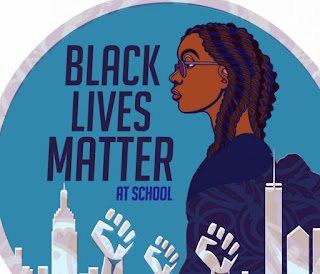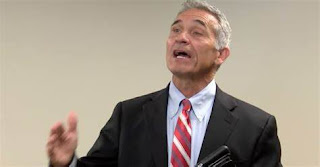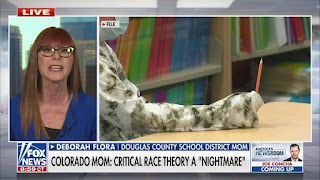Tuesday, February 8, 2022
Furry Panic. Yes, Furry Panic.
Sunday, February 6, 2022
About That Maus Controversy
The Tennessee flap over Maus has burned up a lot of space. Is it really worth all that fuss.
Even though the McMinn County School Board members themselves talked about "banning" the book, but what they actually did was remove it from the curriculum. It will not be part of the officially adopted ELA reading work for eighth grade in the district. Nobody has said anything about removing it from the school library. The actual motion that was passed was "we remove this book from the reading series and challenges our instructional staff to come up with an alternative method of teaching The Holocaust."
Maus hasn't made the ALA list of challenged books in three decades. It's a prizewinning stunning modern work of literature, and there's very little in it to be offended by, which makes it an attractive choice for school programs. (Though decades ago a Polish friend complained to me about the portrayal of Poles as pigs in the work.) Except in this one district.
On any given day, you can find a school board somewhere in this country doing something dumb. And there was a lot of dumb in the room. Reading the transcript of the board meeting, you will find panic over the lascivious lyrics of "I'm Just Wild About Harry," a surprise Broadway hit song of 1921, plus a lot of uncertainty about copyright law and a serious concern about words that students, they acknowledge, might very well hear outside of school or on the tv, but wouldn't be tolerated in school itself. Also, Art Speigelman used to draw cartoons for Playboy, so, you know...
If you don't want to read the full transcript, you can get a good summary here at Mother Jones. What David Corn's summary doesn't fully capture is how the educators tried to calmly and reasonably explain the presence of the book in the curriculum, and how completely Not Heard they were by the board. It certainly was not the first time professional educators were ignored and disrespected by their board, but it's always frustrating when it happens. Nor does most of the coverage capture that this board, while stubborn and a bit thick, were not hell bent for leather to do ditch Maus; at one point in the meeting they even tabled the motion.
It sucks to have your board override your professional judgment, particularly for prudish, rather than educational, reasons. And if these guys think the exceedingly tame Maus is problematic, just wait till someone explains the dirty parts of Shakespeare to them. But I suspect that this story would have been a strictly local issue if book banning weren't having a moment right now.
Book banning sucks and is stupid and on top of that doesn't even accomplish what banners want to accomplish. But reconfiguring the reading list for a curriculum happens regularly, often as works are reconsidered for appropriateness and current standards. Schools across the country have reconsidered To Kill A Mockingbird and English teachers are always painfully aware that for every book they do teach, there are ten other worthy books out there--and they occasionally decide to do something about it. This stuff happens, but forbidding teachers to use a certain text in their classroom (without actually listening to their explanation for using it) is tying their hands and professionally insulting. But until you're taking all the copies out of the school library or throwing them on a big bonfire, it's not a ban.
In the end, I don't think McMinn County and Maus are actually a national new story (I'm aware of the irony in my devoting a post to them here). They don't appear to mark the start of a trend nor do their actions seem informed by any of the current agitating groups. It's a bad decision, even an insulting one for their faculty, but it's a local one. As attempts to ban books and gag teachers go these days, this is small potatoes, and most notable for getting a lot of people to read one of the modern classics that everyone should read, including all the Tennessee children now being showered with free copies of the work--which in McMinn County, unfortunately, they'll be left to negotiate without the insights and support of their teachers.
Which is perhaps the weirdest message to come out of McMinn-- "This book has naughty words and disquieting images while discussing a hugely important and terrible time in human history, so we feel that students should definitely not have the support and assistance of a trained educator while they're sorting it out." Good luck to the folks in McMinn County.
ICYMI: Ice Sculpture Edition (2/6)
Every year in my small town we have a mini-festival in which part of the town park becomes a showplace for ice sculptures. It has survived COVID mostly unscathed because it's outside and it's cold, so crowds don't exactly gather. Fun times. Best to go at night, when the sculptures are lit up. And you can revisit it for weeks, depending on the weather because, in one of those small towny things, nobody bothers the sculptures while they're up.
Here's your reading for the week.
Moving the SATs online won't restore them to relevance
At The Hill, Josh DeSantis argues that the SATs latest move isn't going to help them escape irrelevance
Glenn Youngkin Tip Line Update
Mother Jones has a follow-up on Youngkin's snitch line. Doesn't seem to be going well, despite refusals to honor FIOA requests.
The Highly Unqualified Teacher
Nancy Flanagan remembers when a cornerstone of ed policy was the "highly qualified teacher." Now that we've completely thrown that out the window, what could be the results?
DeVos touts voucher ballot initiative
Michigan voters have beaten back DeVos voucher plans numerous times, but this time the family thinks they may have a way to circumvent the people and just get those tax dolars flowing to private religious schools. And they are spending a ton of money on it
People are fighting. Is that news?
You may not agree with this piece, but at a minimum it may spur some thinking. Greg Toppo suggests that education coverage might benefit from more light and less heat.
I don't usually do video clips, but this two minutes with Amanda Ripley is an awesome explanation of my favorite new term.
Research points to effectiveness of tutoring and challenge of scaling it
At Th 74 (yes, I know, but some of their straight journalism is pretty useful) a look at research about tutoring and the challenge of making it big enough to help students in larger numbers.
Why there hasn't been a mass exodus of teachers
Rebecca Klein takes a look at some of the details behind that mass teacher exodus that is often touted, but rarely backed up by actual numbers.
Teachers are quitting and companies are hot to hire them
At the Wall Street Journal, an article that suggests the prospects for ex-teachers (however many there actually are) are actually pretty good.
Having trouble keeping track of how many states are trying to clamp down on teaching about race and other discomfort-inducing topics? Chalkbeat has a map.
Efforts to ban CRT affect roughly a third of US students
At EdWeek, Eesha Pendharker has done some tallying as well, and the numbers are large.
Madeline Morgan's vision for Black history in schools
A first person Chalkbeat piece from the guy who's writing the book about the Bronzeville visionary.
Friday, February 4, 2022
Parents Defending Education Targets Black Lives Matter
Parents Defending Education is one of the more prominent groups fueling the crt-making-teacher gag law panic; they are led by folks who are seasoned political players including Nicole Neily (Cato Institute, Independent Women's Forum, Speech First, Charles Koch Institute fan), Asra Nomani (Pearl Project, supporter of Trump Muslim ban), Erika Sanzi (Education Post), Marissa Fallon (Coalition for Tj-an advocacy group demanding "merit-based" admissions for school), Aimee Viana (founder of her own edu-consulting business, served in USED under DeVos), Kim Richey (USED under DeVos, counsel in Office of Civil Rights under Bush II), Rachel Hannabass (Institute for Justice, Leadership Institute)... you get the idea. Many of them have logged Fox appearances. This is not a bunch of moms gathered around the kitchen table. Also, they've got a Private School Advocacy Associate, who is "a passionate proponent of school choice, private schools, and Catholic liberal education."
PDE decided to come out against Black Lives Matter at School. Per their press release:
From Boston, Mass., to Seattle, Wash., school districts, schools, teachers’ unions and educators around the country are teaching the controversial activist curriculum, lesson plans, activities and, even, official coloring book of “Black Lives Matter at School” starting Monday, January 31, according to a national review of schools by Parents Defending Education.Wednesday, February 2, 2022
AL: A Proposal To End State Support Of Public Education
State Senator Del Marsh proposed this week the "ultimate" school choice bill, the "Parents' Choice Bill," (SB140) a super-education savings account. But that's not what it really is.
This is an ESA in its fully realized form-- every Alabama family gets every cent the state would have spent on educating their child (about $6,300 last year) and they can use it to pay for educational whatever--public school, home school, private school, tutoring, online classes, whatever.
Marsh is a longtime champion of disinvestment in Alabama public ed, having pushed charters and charter expansion in previous years (he also co-sponsored a bill to make bribery of legislators by lobbyists legal).
This is a big deal, a bill that changes the rules for education in an entire state, but coverage so far has been light (the bill was supposedly going to be filed yesterday) and details.
One early complaint is that the bill would cost the state about $420 billion in education funds. Alabama Education Association executive director Army Marlowe also called out the bill for its lack of transparency and its generosity to private operators:
Senator Marsh’s “Parent’s Choice Bill” should be called exactly what it is – “No Vendor Left Behind “ – a shell game of a voucher program to divert money from Alabama’s community schools. There is a complete lack of transparency regarding this egregious bill by rushing it through committee this week. Regardless of whether Senators have been given the opportunity to study the bill, by filing it this week and expecting it to not only be in committee, but to be voted out of a committee is mind blowing. A bill of this magnitude that would result in more than $420 million cut from the Education Trust Fund rushed through committee without the opportunity for at least a week of scrutiny by the public and the media makes you wonder why Sen. Marsh is in such a hurry to move this bill.Tuesday, February 1, 2022
Alarming Pre-K News
New research is problematic news for the world of pre-K.
We've long known that a good pre-school is not a magical jump start that guarantees your kids will end up in the Ivy League, and advantages tend to fade within a few years, but new research from Vanderbilt's Peabody College suggests the reality could be far worse. One of the authors puts it bluntly:
The researchers looked at 2,990 children enrolled in Tennessee's voluntary state-funded pre-K program. By the end of sixth grade, those students were doing worse than their peers--academically, behaviorally, all the -allies. They were even more likely to end up in special ed. The study compared the students who were randomly selected for the program to those students who applied for the program, but didn't get in. So a pretty clean basis for the data.
We're looking at pre-K students from the 2009-2011 years, so there's a real possibility that much has changed in Tennessee's pre-K program (in fact, changed because of earlier findings from these same researchers). But the question remains--what the hell happened?
The short answer is that nobody knows.
Possible culprits? A heavy-on-academics program that attempts to pack the littles with studying scholastic stuff instead of just going outside and playing. But other experts argue that it's a lack of coherence, and that there's just too many pre-K programs that are higgledy-piggledy; standardize some academic rigor, these experts say. I say these experts are full of it."Possibly the problem in Tennessee is not with pre-K, but with K-6 and how it treats children who went to pre-K" says co-director Steven Barnett at the National Institute for Early Education Research (Rutgers). We know that "adverse childhood experiences" have long term negative effects--were Tennessee's pre-K programs somehow providing plenty of ACE (for example, doing stupid worksheets and cramming academics). Another theory is that Tennessee's pre-K programs just aren't very good, but even if that's the answer, it's pretty alarming to learn that "not very good" is actually worse than nothing at all.
There are lots of blanks to fill in here, and I can't do that at the moment because the paper is behind a paywall and won't be released until January of 2023 (presumably academics can spend that year complaining that the public doesn't pay enough attention to research). So there are details I don't know--for instance, what exactly did the group that didn't get into pre-K do instead--home school? another pre-K program? nothing at all?
And we know that other results are out there. Research about Head Start shows positive outcomes, and a recent study in Boston found benefits all the way up through high school graduation.
Meanwhile, state pre-K programs are struggling with the impact of problems going all the way back to the funding collapse of 2008 through the loss of students during the pandemic (and the corresponding loss of funding). At the very moment that we need to take steps to save these programs, we need to know what about them (if anything) is worth saving and what form they should take. This new study raises some huge questions that really, really need answers.
Monday, January 31, 2022
Brace Yourself: There's A Movie Coming
This coming from Parents United America, another parental rights organization.
We are the parents and we are united! We will stand together for our rights to raise our children and be the primary authority in their lives. Our children do not belong to the government, the schools or society.






